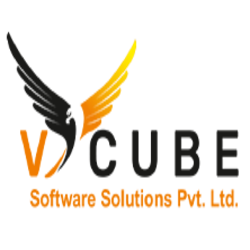Choosing DevOps Courses
When it comes to pursuing a career in DevOps, one of the most important decisions you’ll have to make is selecting the right training program. With the growing demand for skilled DevOps professionals, there are numerous options available in Kukatpally.
However, not all DevOps training courses are created equal. To ensure your success in this competitive field, it is crucial to choose a program that aligns with your goals, learning style, and industry requirements. In this article, we will explore some key factors to consider when selecting DevOps courses in Kukatpally.
Understanding DevOps
Before we dive into the specifics of choosing a training program, let’s briefly understand what DevOps entails. DevOps is a software development approach that combines software development (Dev) and IT operations (Ops). It aims to enhance collaboration, communication, and automation between development teams and IT operations, ultimately leading to faster and more reliable software delivery.
DevOps professionals possess a unique skill set that blends coding, testing, infrastructure management, and deployment. They are responsible for streamlining the software development process and ensuring continuous integration and delivery. With organizations across all industries embracing DevOps practices, the demand for skilled DevOps professionals is skyrocketing.
Factors to Consider
When choosing a DevOps training program in Kukatpally, it is essential to evaluate various factors to ensure you make an informed decision. Consider the following factors:
1. Course Content and Curriculum
The first aspect to evaluate is the course content and curriculum offered by the training program. A comprehensive DevOps training program should cover key concepts such as version control, continuous integration, continuous delivery, infrastructure as code, containerization, and cloud technologies.
Make sure to carefully review the course syllabus and ensure it aligns with your learning objectives. Look for programs that offer hands-on exercises, real-world projects, and industry-relevant case studies to enhance your practical skills.
2. Trainer Expertise and Experience
The quality of the training largely depends on the expertise and experience of the trainers. Look for programs that have experienced trainers who have worked in the DevOps industry and possess a deep understanding of the tools and practices involved.
Before enrolling in a course, research the trainers’ credentials, read reviews from past students, and assess their ability to effectively communicate complex concepts. The trainers should be able to provide guidance and mentorship throughout your learning journey.
3. Training Format
Consider the training format that best suits your learning style and schedule. DevOps training programs in Kukatpally may offer different formats, such as in-person classroom training, online instructor-led training, or self-paced online courses.
If you prefer a structured learning environment and face-to-face interactions, the classroom training option might be the best fit for you. On the other hand, if flexibility is crucial and you prefer learning at your own pace, self-paced online courses could be a better choice.
4. Hands-on Learning Opportunities
DevOps is a practical discipline, and hands-on experience is crucial for gaining proficiency in the various tools and technologies used. Look for training programs that provide ample hands-on learning opportunities through labs, projects, or real-world simulations.
Ensure that the program allows you to work with popular DevOps tools such as Git, Jenkins, Docker, Kubernetes, and AWS. Practical experience will not only strengthen your understanding of concepts but also demonstrate your skills to potential employers.
5. Industry Recognition and Certifications
While not mandatory, certifications can add credibility to your DevOps skills and increase your employability. Research the training program’s affiliations and accreditations to ensure they hold value in the industry.
Look for programs that offer certifications from reputable organizations such as the DevOps Institute, Amazon Web Services (AWS), or Microsoft Azure. These certifications validate your knowledge and skills and can give you an edge over other candidates during job interviews.
DevOps Certification Options
Now that we have discussed some key factors to consider when choosing a DevOps training program, let’s explore some popular certification options available in Kukatpally:
1. Certified DevOps Engineer (CDE)
The Certified DevOps Engineer (CDE) certification offered by the DevOps Institute is widely recognized in the industry. This certification validates your knowledge of DevOps principles, practices, and tools. It covers areas such as continuous integration, continuous delivery, configuration management, and automating infrastructure.
To achieve the CDE certification, you need to pass a rigorous exam that tests your understanding of DevOps concepts and your ability to apply them in real-world scenarios. The certification is a valuable addition to your resume and showcases your commitment to professional excellence in the DevOps field.
2. AWS Certified DevOps Engineer
If you are interested in DevOps in the context of cloud computing, obtaining the AWS Certified DevOps Engineer certification is an excellent choice. Offered by Amazon Web Services (AWS), this certification validates your expertise in implementing and managing DevOps practices on the AWS platform.
The certification requires a solid understanding of AWS services such as AWS Code Pipeline, AWS Elastic Beanstalk, AWS Cloud Formation, and AWS Lambda. It demonstrates your ability to design, deploy, monitor, and scale applications on AWS, following the principles of DevOps.
3. Microsoft Certified: Azure DevOps Engineer Expert
For those working in a Microsoft Azure environment, the Microsoft Certified: Azure DevOps Engineer Expert certification is highly valuable. This certification validates your skills in designing and implementing DevOps practices using Azure technologies.
The certification covers areas such as version control, continuous integration, continuous delivery, dependency management, and application infrastructure deployment. It demonstrates your proficiency in using Azure DevOps tools and services to streamline the software delivery process.
4. Google Cloud Professional DevOps Engineer
If you prefer working with Google Cloud Platform (GCP), the Google Cloud Professional DevOps Engineer certification is worth considering. This certification recognizes your ability to design, develop, and manage DevOps processes on the GCP platform.
The certification exam assesses your knowledge and skills in areas such as continuous integration, continuous delivery, monitoring and logging, and security. It demonstrates your competence in leveraging GCP services and tools to optimize software development and delivery workflows.
Conclusion
Choosing the right DevOps training program in Kukatpally is a crucial step towards building a successful career in this fast-growing field. Consider factors such as course content, trainer expertise, training format, hands-on learning opportunities, and industry recognition when making your decision.
Additionally, obtaining industry-recognized certifications like the Certified DevOps Engineer, AWS Certified DevOps Engineer, Microsoft Certified: Azure DevOps Engineer Expert, or Google Cloud Professional DevOps Engineer can significantly boost your career prospects.
Investing in high-quality DevOps training and certifications will equip you with the skills and knowledge necessary to excel in the dynamic world of DevOps and open up exciting opportunities in software development and IT operations.



